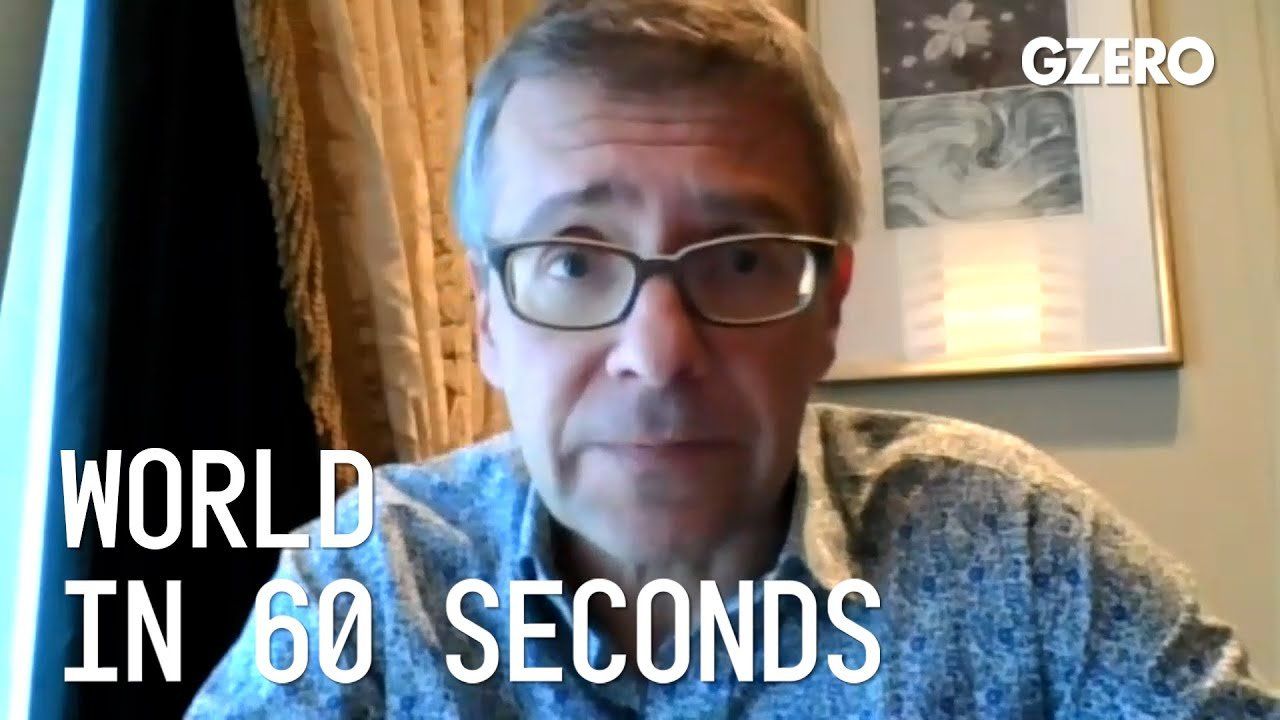Ian Bremmer shares his insights on global politics this week on World In :60.
Will Hunter Biden's tax crimes impact Joe Biden's reelection in 2024?
No, I don't think it will, but certainly it is impacting the continued erosion of US democratic institutions. I mean, this will be used by the GOP to say that, "There's differential treatment between the Biden crime family and the Trump crime family." My personal belief is that these are not equivalent, and I'll be talking about that later in the week. But what that means is the DOJ and the FBI are going to be seen as increasingly politicized as organizations. That's really unfortunate for the US, but it doesn't have much impact on 2024.
How will the EU's AI Act look in practice?
This is an effort by the regulatory superpower, the EU, which doesn't have a lot of big tech companies, and it doesn't have a lot of heavy security or military industrial complex, but it does have technocrats in Brussels, and Margrethe Vestager in particular in charge of competition, riding herd on this, wants to make sure that the EU is the one that gets to set the rules. And they are working really hard on the Americans in the transatlantic conversations with their own Member States to see that it is not going to be a hub and spoke model where individual departments get to regulate, but instead where the EU as a whole sets the rules. Having said that, this is early days and nothing is going to be actually rolled out for a year or two, minimum, absolute minimum, which means this is still a space driven by the tech companies.
Finally, how will the US respond to a possible China-Cuba military training facility?
Well, they won't like it, and maybe they'll try to disrupt it, though they already have all sorts of sanctions on Cuba. So, it's not like you can do much to the Cubans economically. And if the Cubans as a sovereign country want to do business with the Chinese, that includes military engagement, yeah, they're not a democracy, so it doesn't represent the interests of the people, but neither is the UAE or Qatar or Saudi Arabia, and the Americans have bases there. And also, keep in mind, US military capabilities and surveillance on China, a hell of a lot greater in China's backyard than China's abilities on the United States. At the end of the day, it's kind of open competition and the Americans are going to have to compete harder and continue to be stronger. And the CHIPS Act has done that. Maybe we'll see more of that in other areas, too.
More For You
1,170: The number of high-rise buildings in Kyiv that were left without heating following a barrage of Russian attacks last night on Ukraine’s capital and its energy facilities, per Kyiv Mayor Vitali Klitschko.
Most Popular
What We’re Watching: US critical minerals summit, Rafah crossing reopens, Border violence in Pakistan
U.S. President Donald Trump and Japanese Prime Minister Sanae Takaichi hold up signed documents regarding securing the supply of critical minerals and rare earths, at a bilateral meeting at Akasaka Palace in Tokyo, Japan, October 28, 2025.
Representatives from the European Union, United Kingdom, Japan, and others will meet in Washington this week to discuss a strategic alliance on critical minerals.
Hard numbers: Large protests in Czechia, UAE-linked firm has large stake in the president’s company, & More
80,000: The number of people estimated to be in the streets of Czechia on Sunday to show their support for President Petr Pavel after he blocked the nomination of an environmental minister who performed the Nazi salute and posted Nazi memorabilia.
The US has started handing $1,000 to the bank accounts of newborn babies. But can policies like this one help boost sagging birthrates in advanced democracies?
